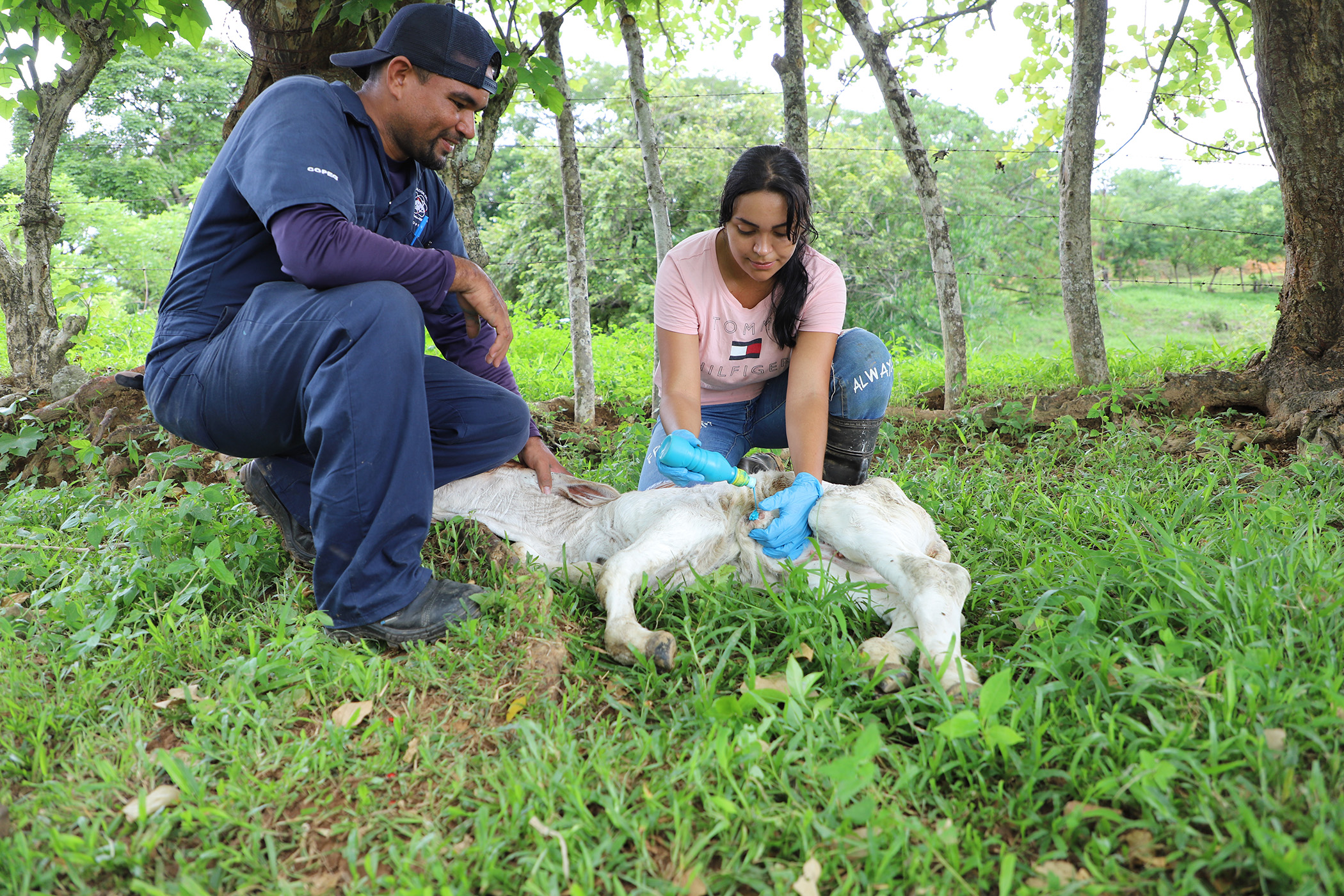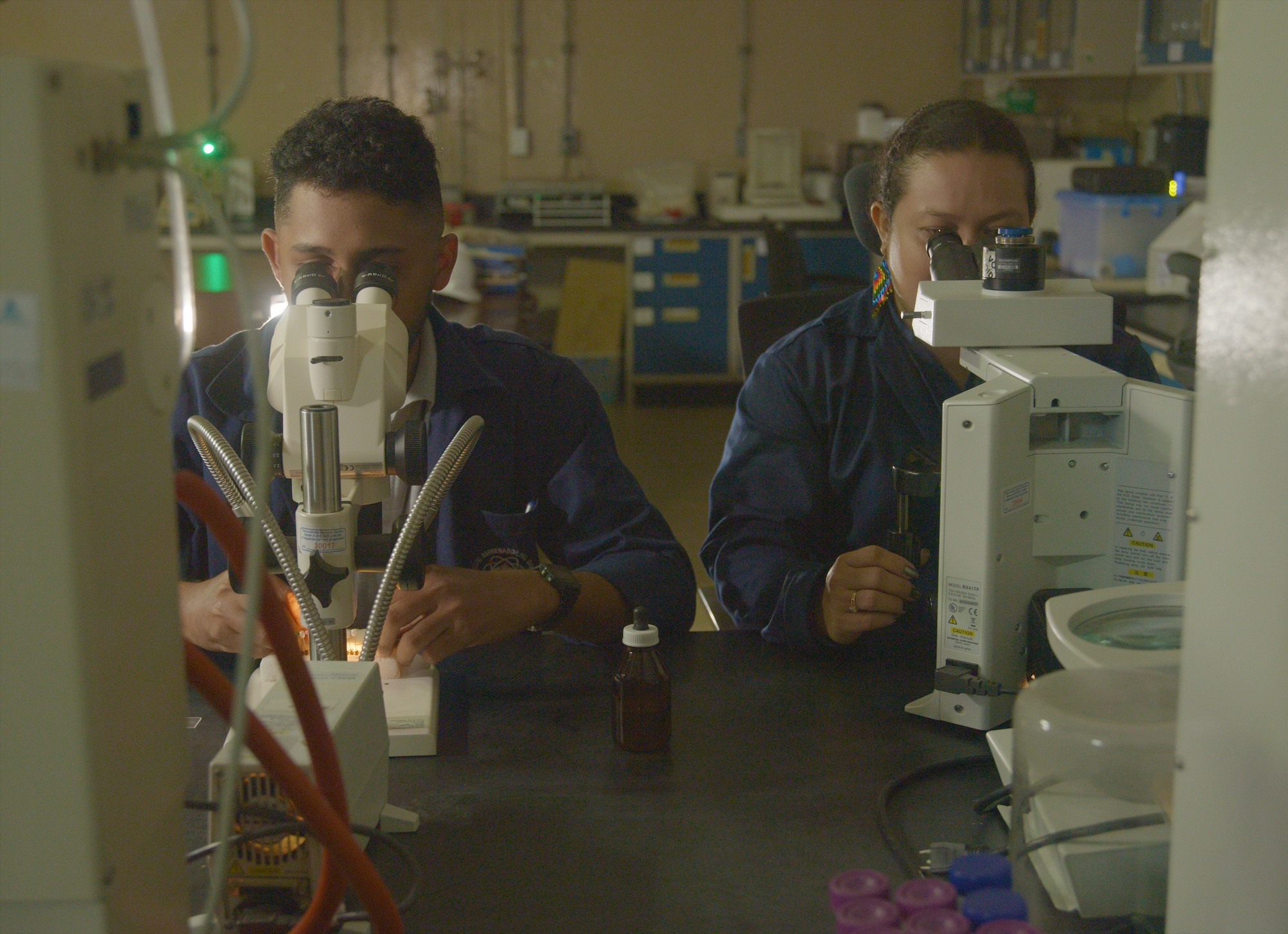Implementation of the DGNTI-COPANIT ISO/IEC 17025:2017 Standard in the Diagnosis and Identification Unit of the Screwworm
Empowering precision and quality in every product and service
Challenges
The Panama-United States Commission for the Erradication and Prevention of Cattle Screwworm (known in Spanish as COPEG) represents for Panama and the world a benchmark for a serious transboundary disease. Standing out as a reference laboratory gives the employees and organization prestige plus it makes their potential and professional capacity noticeable.
Accrediting the technical expertise of the identifiers to carry out the diagnosis of all samples according to the morphological characteristics, which arrive at the Laboratory Unit (known in Spanish as UDI de GBC de COPEG).
Towards a Solution
The activity focuses on the diagnosis of all samples according to their morphological characteristics, which arrive at the Diagnosis and Identification Unit (UDI) Laboratory of COPEG’s Screwworm Unit. These ISO certifications, therefore, attest to the Laboratory’s ability to provide accurate results and the Organisation’s capability to manage the quality of its products and services, as well as to meet the expectations of our beneficiaries.
The accreditation establishes a standard based on the technical competencies of the identifiers to perform the diagnosis, so any professional who follows the processes and receives recognition has the opportunity to participate in the UDI.
The expected impact is the contribution to the control and eradication of the disease, ensuring that reliable diagnosis allows for a timely response with targeted actions based on identifications by area or region. Additionally, it positions Panama as the headquarters of a reference centre with high-value professionals.
An annual satisfaction survey is conducted with beneficiaries as part of the process to validate the service. In the two years of accreditation, it has been approved and has resulted in the continuity of the certification.
A standard with parameters of diagnostic sensitivity and specificity has been established, allowing for measurement and the establishment of an efficiency norm.
This outcome strengthens the institutional capacities of COPEG, the Ministry of Agricultural Development, and other veterinary services in the region. This is achieved through capacity building with courses and training workshops, which have already been conducted, as well as by supporting and validating diagnoses in cases of doubt. COPEG has highly trained and committed personnel who, upon receiving recognition as a Reference Laboratory by the World Organization for Animal Health (WOAH), also commit to maintaining the quality of service and offering it to all who require it, thereby contributing to ensuring healthy lives, promoting well-being for all, and preserving vital terrestrial ecosystems essential for sustaining human life.
Contact Information
Ellyana Cifuentes, Coordinadora de Gestión de Calidad, The Panama-United States Commission for the Eradication and Prevention of Cattle Screwworm (COPEG)
Countries involved
Panama, United States of America
Nominated By
Ministry of Foreign Affairs of the Republic of Panama
Supported By
Governments of The Republic of Panama and The United States of America
Implementing Entities
Ministry of Agricultural Development of Panama, The Panama-United States Commission for the Erradication and Prevention of Cattle Screwworm (COPEG)
Project Status
Ongoing
Project Period
10/2018
Sectors
Agriculture, Food and Rural Development, Capacity Building
URL of the practice
https://www.copeg.org/Primary SDG
03 - Good Health and Well-being
Secondary SDGs
15 - Life on Land
Primary SDG Targets
3.9Similar Solutions












